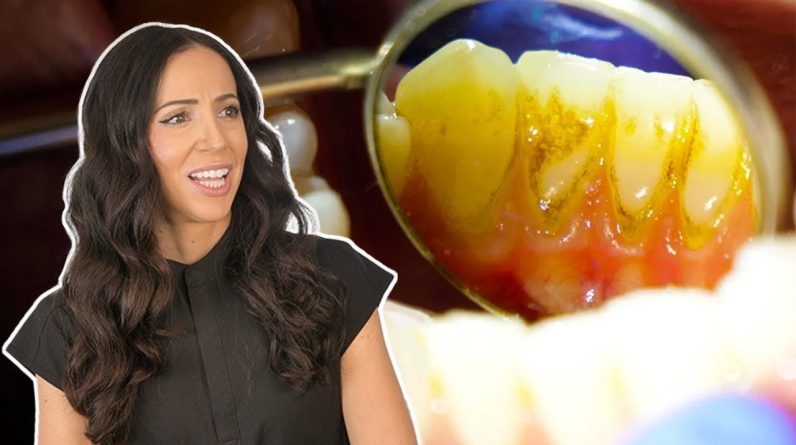Veneers are a popular cosmetic dental solution, offering a quick way to achieve a bright, flawless smile. However, many wonder whether these thin shells of porcelain or resin can stain over time. For those considering this option, Radiant Smiles Dental Veneers provides expert advice into maintaining your veneers and ensuring they stay as radiant as the day you got them. Understanding the staining potential of veneers is crucial for maintaining that radiant smile and making informed choices about dental care.
Key Takeaways
- Veneers and Staining: Veneers can stain, but their susceptibility largely depends on the material used; porcelain veneers generally resist stains better than composite veneers.
- Material Types: Porcelain veneers are known for their durability and aesthetic appeal, while composite veneers are less expensive but tend to be more prone to discolouration.
- Lifestyle Impact: Consumption of staining agents like coffee, tea, and tobacco can contribute to veneer discolouration, highlighting the importance of dietary choices in veneer maintenance.
- Oral Hygiene Practices: Regular brushing, flossing, and routine dental check-ups are crucial for preventing plaque accumulation and preserving the brightness of veneers.
- Preventative Measures: Adopting measures such as limiting staining foods and using non-abrasive dental products can significantly prolong the lifespan and appearance of veneers.
Understanding Veneers
Veneers offer a cosmetic solution for enhancing smiles. They consist of thin shells made from porcelain or resin, designed to cover the front surface of teeth.
What Are Veneers?
Veneers are custom-made dental materials that are bonded to the teeth. They aim to improve the appearance of discoloured, worn, or irregularly shaped teeth. The procedure typically involves minimal tooth reduction to ensure a proper fit. Patients often choose veneers for their natural look and ability to enhance overall smile aesthetics.
Types of Veneers
Several types of veneers are available, each differing in material and application:
- Porcelain Veneers: These are strong and stain-resistant. They mimic the natural translucency of teeth, making them a popular choice for aesthetics.
- Composite Veneers: Made from a tooth-coloured resin, these veneers are less expensive but may not last as long as porcelain options and are more prone to staining.
- Lumineers: A type of veneer that requires little to no tooth preparation. They are thinner than traditional veneers and can be reversible.
- Minimal Prep Veneers: These veneers require less tooth alteration compared to traditional veneers, preserving more of the natural tooth structure while still achieving an improved appearance.
Factors Influencing Staining
Several factors influence the staining of veneers, affecting their longevity and appearance. Understanding these aspects is crucial for optimal care.
Material Composition
Material composition plays a significant role in the susceptibility to staining. Porcelain veneers resist stains due to their dense structure, while composite veneers, though cost-effective, absorb pigments from food and drinks more easily. The finish of the veneer also impacts stain resistance; polished surfaces repel stains better than matte finishes.
Lifestyle Habits
Lifestyle habits directly affect the maintenance of veneer brightness. Frequent consumption of staining substances such as coffee, tea, red wine, and tobacco increases the likelihood of discolouration. Poor oral hygiene practices can exacerbate staining, as plaque accumulation around veneers may trap pigments. Additionally, acid from certain foods and drinks can wear down the veneer’s surface, making them more prone to stains. Regular dental cleanings and adherence to effective oral care routines mitigate these risks.
Do Veneers Stain?
Veneers can suffer from discolouration, though the severity depends on the material type and maintenance. Porcelain veneers resist staining better than composite options, making them a popular choice for longevity and aesthetic appeal.
Evidence and Studies
Research indicates that porcelain veneers typically resist stains due to their smooth surface and glass-like properties. A study published in the Journal of Prosthetic Dentistry found that porcelain demonstrated lower staining rates compared to composite materials. In contrast, composite veneers showed a tendency to absorb pigments from foods and beverages, leading to noticeable discolouration over time.
Comparison with Natural Teeth
Veneers generally stain differently than natural teeth. While both can discolour, natural teeth respond more visibly to staining agents, resulting in significant changes in colour. Veneers, particularly porcelain ones, maintain their colour integrity longer. Careful oral hygiene practices, such as regular brushing and professional cleanings, help preserve both veneers and natural teeth from discoloration.
Prevention and Care
Maintaining veneers requires specific practices to prevent staining and prolong their lifespan. Adhering to effective care routines ensures the aesthetic appeal of veneers remains intact.
Best Practices for Maintenance
- Regular Brushing: Brush veneers twice daily using a non-abrasive fluoride toothpaste. This routine prevents plaque build-up and helps maintain the veneer’s sheen.
- Flossing: Floss daily to remove food particles and plaque from between teeth and along the gum line. This practice protects both natural teeth and veneers from discolouration.
- Routine Dental Visits: Schedule dental check-ups every six months. Professional cleanings remove stains and maintain dental health.
- Limit Staining Foods and Drinks: Reduce intake of foods and beverages that can cause discolouration, such as coffee, tea, red wine, and berries.
- Avoid Tobacco Products: Abstaining from smoking or using tobacco reduces the risk of staining and promotes overall oral health.
- Non-Abrasive Toothpaste: Use fluoride toothpaste that specifies it is safe for veneers. These products clean without scratching the surface.
- Mouthwash: Choose alcohol-free mouthwash to prevent drying out the gums and ensuring comfort while using veneers.
- Dental Floss: Select waxed dental floss that glides easily between teeth and does not snag on veneers.
- Soft-Bristled Toothbrush: Opt for a soft-bristled toothbrush to minimise wear on veneers while effectively cleaning teeth.
- Whitening Products: Consult with a dentist before using any whitening products. Some may not be suitable for veneered teeth and can cause damage.
Conclusion
Veneers can offer a beautiful smile while providing resistance to stains. Porcelain veneers stand out due to their durability and ability to maintain their colour over time. By adopting proper oral hygiene practices and being mindful of dietary choices it’s possible to keep veneers looking their best. Regular dental check-ups play a crucial role in preserving their appearance. With the right care and attention veneers can remain a long-lasting solution for a stunning smile.
Frequently Asked Questions
What are veneers?
Veneers are thin shells of dental material, often porcelain or composite resin, used to cover the front surface of teeth to improve appearance. They correct issues like discolouration, chips, and misalignment.
Why are porcelain veneers preferred over composite veneers?
Porcelain veneers are preferred due to their high stain resistance and durability. They have a smooth surface and glass-like properties that help prevent discolouration more effectively than composite options.
How can I prevent my veneers from staining?
To prevent staining, maintain good oral hygiene by brushing and flossing regularly. Limit consumption of staining foods and drinks, avoid tobacco products, and visit your dentist for routine check-ups.
Can I whiten my veneers?
It is not recommended to use traditional whitening products on veneers. Always consult your dentist before trying any whitening methods to avoid damage to the veneers.
How long do porcelain veneers last?
Porcelain veneers can last between 10 to 15 years with proper care and maintenance. Regular dental visits and good oral hygiene can help extend their lifespan.







